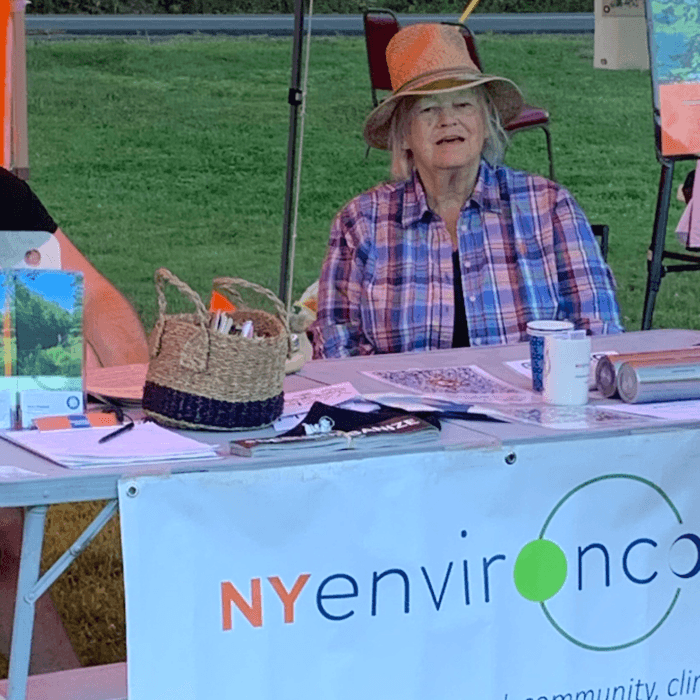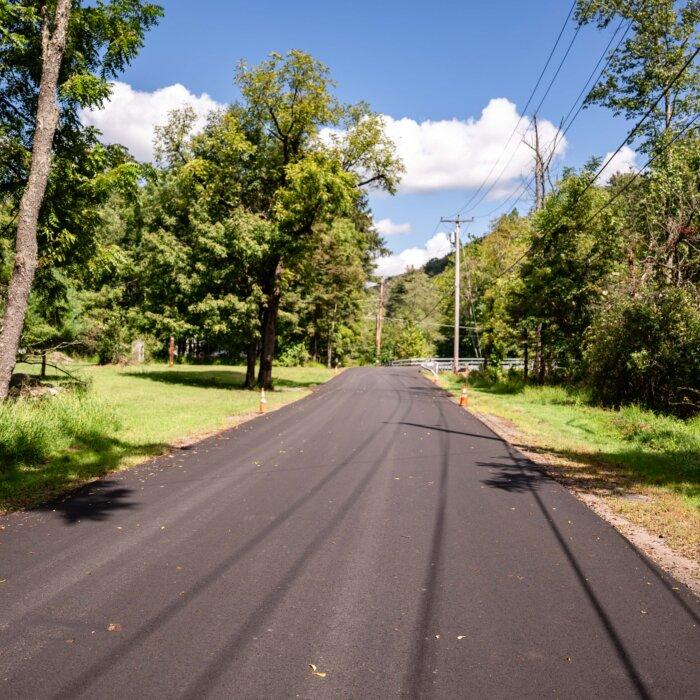A federal judge has dismissed an environmental lawsuit against Dragon Springs, a campus in Orange County, New York, that houses Shen Yun Performing Arts.
The plaintiffs failed to give adequate notice to Dragon Springs before suing, according to the Sept. 11 opinion by Judge Kenneth Karas of the U.S. District Court of the Southern District of New York. The plaintiffs didn’t specify what was allegedly causing an elevated presence of coliform in a local river, nor what exact rule was allegedly being violated, the judge wrote.
Given that the plaintiffs have tried to sue based on the same allegations before, failed, and then failed to remedy the deficiencies in the next suit filed, he dismissed the lawsuit with prejudice, meaning that it can’t be refiled.
Dragon Springs representatives said there was no violation and that the suit was frivolous to begin with.
“From the beginning, it was clear to every third-party engineer and lawyer who looked at the allegations that they were nonsensical,” George Xu, president of Dragon Springs, said in a statement. “But it was also clear the plaintiffs were not filing to win. They were trying to tie up our resources and generate bad press. That was the main reason for these lawsuits.”
The 400-acre Dragon Springs property includes training and rehearsal spaces for Shen Yun, a classical Chinese dance and music company, as well as two schools affiliated with Shen Yun and a Buddhist-style temple affiliated with Falun Gong, a Chinese spiritual practice based on the principles of truthfulness, compassion, tolerance.
Falun Gong adherents have for decades faced brutal persecution by the Chinese Communist Party (CCP), including extralegal detention, torture, and killing, as well as harassment overseas.
Scilla and Woodard have been trying for years to block Dragon Springs’ development and other projects associated with the local Chinese diaspora. This is the third failed environmental suit initiated by one or more of these parties against the campus.
Violations of federal regulations are normally litigated by the government. The Clean Water Act, however, allows citizens to sue if the government is not addressing a specific source of water pollution. In that case, the citizen needs to give a 60-day NOI to the party causing the pollution and the responsible authorities.
NYenvironcom sent Dragon Springs another NOI last year and filed a new suit.
But the new NOI was again faulty, Karas concluded, which warranted a dismissal with prejudice.
“The Court is not aware of any case holding that Plaintiffs can keep throwing NOIs at the wall until one sticks,” his opinion reads.
In order to dismiss a suit before trial, the court is required to assume that all allegations are true and make all factual inferences in favor of the plaintiffs. Despite that, there was more than enough reason to toss the suit, according to the judge.
A NOI must be specific enough so that the addressee can pinpoint where the alleged pollution comes from.
The NYenvironcom NOI said that the Dragon Springs property lies on a slope with “gullies and pathways” that constitute “point sources” of fecal coliform in a local river. Another part of the NOI says that the alleged “point sources” were “600 to 1,000 feet southwest” of a road bridge next to the property.
“These statements—which simply identify areas of land marked by certain features—do not come close to identifying” specific sources of pollution as defined by law, the judge stated.
The permit violation of polluting the surface waters as alleged in the NOI was also “illogical,” according to Karas. None of Dragon Springs’ permits prohibits discharge to surface water. In fact, one permit expressly authorizes stormwater to discharge to surface water under certain conditions.
Later in court, the plaintiffs added another claim—that Dragon Springs violated rules for releasing coliform to surface water without a permit—but that was too late, as the NOI made no mention of such a theory, the judge said.
Karas said he also found “compelling” the argument that simply alleging “continuing construction” at Dragon Springs isn’t enough to “adequately identify the activity alleged to constitute a ... violation,” but he didn’t consider it in his decision.
He noted that the plaintiffs originally tried to file the suit in Manhattan “even though all Parties reside in, and all events giving rise to the case occurred in, the Northern Counties” and that they failed to inform the court that the case was a de facto refiling of their previous suit, which they were “arguably” supposed to do based on local court rules.
“The Court makes no findings about the reasons why Plaintiffs pursued this path, but Counsel would do well to remember those rules in future cases,” the judge said.
Dragon Springs representatives said there was no plausible way for coliform pollution to come from its facilities, which are served by a dedicated wastewater treatment plant. The plant includes a UV unit that eliminates any coliform presence in the wastewater, as documented by periodical testing, they previously told The Epoch Times.
CCP Harassment Campaign
Dragon Springs and Shen Yun in particular have faced sustained harassment from the CCP. Leaked party documents indicated that the regime considers Dragon Springs a “headquarters” of Falun Gong’s efforts to counter the persecution, and has called for strategic and systematic attacks against it.The campus’s staff have had family members in China harassed or imprisoned, and there have also been incidents involving trespassing and vandalism on the property. Shen Yun has had its touring buses repeatedly sabotaged, and government officials and theater staff have reported receiving pressure from Chinese Consulates to cancel Shen Yun shows.
Most of the incidents can be traced back to the CCP, although some match the CCP’s tactics of transnational repression while being difficult to attribute directly.
“From internal documents and recent incidents, it’s clear that the CCP is intensifying its campaign of transnational repression and defamation against Falun Gong as part of a broader scheme to ‘eliminate’ Falun Gong worldwide,” Levi Browde, FDIC executive director, said in a statement.
“At this critical time, it’s reassuring to see a U.S. judge uphold the rule of law and see through the dubious and illogical complaints being made against a Falun Gong related entity like Dragon Springs.”
There’s evidence that the CCP, through proxies, has used the U.S. legal system against its enemies.
“Their intent is to make your life difficult.”







